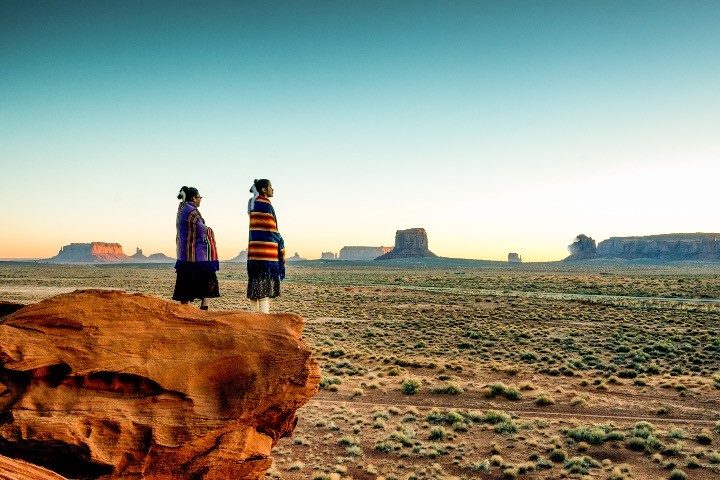
The Supreme Court of the United States (SCOTUS) will hear oral arguments today in a case that places the Navajo Nation up against Colorado River basin states and the federal Department of the Interior (DOI) over water rights to the drought-stricken Colorado River.
The Department of the Interior v. Navajo Nation case summary explained that the federal government and the tribe signed treaties in 1849 and 1868 that placed the Navajo people “under the exclusive jurisdiction and protection of the … United States,” providing “that they are now, and will forever remain, under the aforesaid jurisdiction and protection.” The treaties promised the tribe a “permanent home,” which the Navajo Nation says includes a sufficient supply of water.
The Los Angeles Times shared:
That treaty “promised both land and water sufficient for the Navajos to return to a permanent home in their ancestral territory,” attorneys for the Navajo Nation told the court. “Broken promises. The Nation is still waiting for the water it needs.”
Precious water from the Colorado River supports over 40 million people and millions of acres of productive farmland throughout the arid Southwest. The river basin water supply was originally divided up between Southwestern states in the 1922 Colorado River Compact. The only mention of Native Americans in the compact is, “Nothing in this compact shall be construed as affecting the obligations of the United States of America to Indian tribes.”
The Navajo Nation is the largest Indian reservation in the United States, comprising about 16 million acres, or about 25,000 square miles, approximately the size of the state of West Virginia. The Colorado River runs along part of the northern border of their reservation
The Navajo have fought to protect their interest in water rights to the Colorado River ever since the 1922 compact, with numerous cases over the tribe’s river water access. In a 1964 decree, SCOTUS determined in the Winters case how rights to water relate to the continuing survival and self-sufficiency of indigenous people of native tribes for whom the federal government asserted federally reserved rights.
The treaties, recent agreements, and case decisions are the basis of the current case in which the Navajo are claiming the government breached its duty of trust and broke its promises. The federal government disputes that claim.
ABC News reported:
The government disputes that it explicitly agreed to provide water and says that even if water rights were implied by the treaty, there is no enforceable obligation.
“No substantive source of law expressly establishes the particular duty that the Navajo Nation asserts,” the government said in a court filing.
In today’s arguments, the Navajo tribe will ask the DOI to account for the tribe’s water needs in Arizona and come up with a plan to meet those requirements. The Navajo claim that “many homes on the Reservation lack running water, making it difficult for tribal members to wash their hands regularly,” and add that the “shortage of water [has] in part caused exacerbation of the risks from COVID-19.”
Opposition comes not only from the DOI, but from Western states as well. ABC News shared:
The states – Arizona, Colorado and Nevada – argue the Navajo Nation should never have been able to bring the claim in the first place, since the Supreme Court has asserted exclusive jurisdiction over disputes involving the Colorado River in a series of decisions and decrees over decades.
They also argue that allowing the tribe to claim expanded water rights over the Colorado would upset pre-existing agreements and ultimately mean less water available to those communities that have come to rely on it.
Even if the justices decide for the Navajo Nation, it may be years before the tribe can gain rights to more water, as the case would go back to the U.S. District Court in Arizona to figure out a water-rights settlement.
The Colorado Sun reported:
Tribal water rights often are tied to the date a reservation was established, which would give the Navajo Nation one of the highest priority rights to Colorado River water and could force conservation on others, said [Dylan] Hedden-Nicely of the University of Idaho.
A final opinion in this case will be issued by SCOTUS sometime this summer, and may very well contribute to the long history of lopsided relations between Native Americans and the federal government over broken promises.




